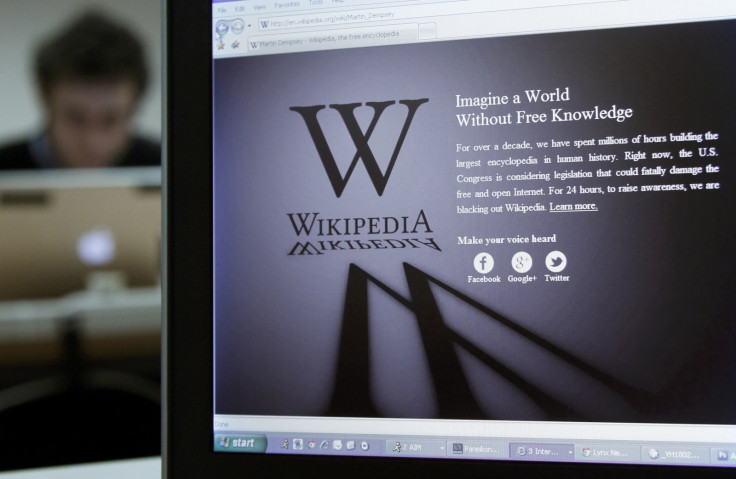Wikipedia editors have received rape and death threats while editing controversial pages
Wikipedia editors say they use Tor to stay anonymous online after being harassed via their IP addresses.

Some of the administrators in charge of editing Wikipedia pages have admitted that they have become greatly concerned about online privacy due to receiving threats whenever they moderate pages about controversial topics.
The admissions were made to researchers of Drexel University in Philadelphia, US, who were carrying out research into how and why internet users protect their privacy while working on collaborative projects online.
The researchers interviewed 23 individuals, including several Wikipedia editors, and discovered that users who work on collaborative projects often receive threats from governments, groups of people and other individuals that are substantial enough to make the users fear for the safety and reputation of themselves and their families.
The extent of the abuse is so bad that many Wikipedia editors now have to use the Tor anonymity network to disguise their IP addresses, because otherwise people who mean them harm trace their IPs and threaten them with violence.
Pervasive threats of harrassment, rape and death
"We were surprised to learn how pervasive and dire the threat was perceived to be among people with central roles (like employees of the Wikimedia Foundation) and permissions like blocking editors or protecting pages (like administrators chosen by the community)," the researchers wrote in their paper.
One female Wikipedia administrator reported that "the fear of harassment, of real, of stalking and things like that, is quite substantial. At least among administrators I know, especially women", while another individual, who started working for Wikipedia as a teenager, said: "It's a lot of emotional work, and I remember being like 13 and getting a lot of rape threats and death threats, and that was when I was doing administrative work."
The Wikipedia editors reported that threats were made to both male and female editors, and that the threats sadly often came from other editors on the project, who had a conflict with the content that was either allowed to be published, or taken off pages for various reason. Threats became more intense if the editors were holding central positions as administrators or members of the arbitration committee, who were given the final say on content.
One Wikipedia administrator living in Europe said he didn't take it seriously when someone threatened a drive-by shooting at his home, but he changed his mind when his wife moved in with him. Similar fears led some political activists who used online spaces (but not Wikipedia) to organise and share information to use the Tor network.
"They busted [my friend's] door down and they beat the ever living crap out of him... and told him, 'If you and your family want to live, then you're going to stop causing trouble,'" one interviewee told the researchers.
"I have a family. So, after I visited him in the hospital, I started—Well, at first I started shaking and went into a cold sweat, then I realised I have to—I started taking some of my human rights activities into other identities through the Tor network."
Wikipedia editors fear government surveillance
The Wikipedia editors said that multiple administrators who are learned experts in their fields, such as scientists, edit Wikipedia pages anonymously in order to make sure that there is no impact to their professional reputations, or if they edit pages publicly using their real names, they have to avoid editing pages or adding certain opinions or references, in case it gets traced back to their real name.
Government surveillance is definitely a major worry for many Wikipedia editors. One editor told the researchers: "For the Edward Snowden page, I have pulled myself away from adding sensitive contributions, like different references, because I thought the name may be traced back to me in some way."
"If such voices are systematically dampened by the threat of harassment, intimidation, violence, or opportunity and reputation loss, projects like Wikipedia cannot hope to attract the diversity of contributors required to produce 'the sum of all human knowledge,'" the researchers concluded.
The open access paper, entitled "Privacy, Anonymity, and Perceived Risk in Open Collaboration: A Study of Tor Users and Wikipedians" is published on the website of Andrea Forte, an associate professor directing Drexel University's Social Computing Research Group, who led the study.
The paper will be presented at the Association of Computing Machinery (ACM) Conference on Computer-Supported Cooperative Work and Social Computing in February 2017.
© Copyright IBTimes 2025. All rights reserved.






















